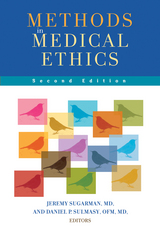
Research with human subjects has long been controversial because of the conflicts that often arise between promoting scientific knowledge and protecting the rights and welfare of subjects. Twenty-five years ago the National Commission for the Protection of Human Subjects of Biomedical and Behavioral Research addressed these conflicts. The result was the Belmont Report: Ethical Principles and Guidance for Research Involving Human Subjects, a report that identified foundational principles for ethical research with human subjects: respect for persons, beneficence, and justice.
Since the publication of Belmont, these three principles have greatly influenced discussions of research with human subjects. While they are often regarded as the single-most influential set of guidelines for biomedical research and practice in the United States (and other parts of the world), not everyone agrees that they provide adequate guidance. Belmont Revisited brings together a stellar group of scholars in bioethics to revisit the findings of that original report. Their responses constitute a broad overview of the development of the Belmont Report and the extent of its influence, especially on governmental commissions, as well as an assessment of its virtues and shortcomings.
Belmont Revisited looks back to reexamine the creation and influence of the Belmont Report, and also looks forward to the future of research—with a strong call to rethink how institutions and investigators can conduct research more ethically.

Medical ethics draws upon methods from a wide array of disciplines, including anthropology, economics, epidemiology, health services research, history, law, medicine, nursing, philosophy, psychology, sociology, and theology.
In this first book to systematically examine, critique, and challenge some of these disciplines and their methods in light of their influence on medical ethics, leading scholars present particular methods that have played significant roles in the field. The methods addressed include philosophy, religion and theology, professional codes, law, casuistry, history, qualitative research, ethnography, quantitative surveys, experimental methods, and economics and decision science. Reviewing each, they provide descriptions of techniques, critiques, and notes on resources and training. Physician-assisted suicide and euthanasia are used as an illustration of the richness of multidisciplinary work applied to individual issues. Similarly, genetic testing is used as an example of how multiple descriptive methods may privilege certain findings.
Methods in Medical Ethics is a valuable resource for scholars, teachers, editors, and students in any of the disciplines that have contributed to the field. As a textbook and reference for graduate students and scholars in medical ethics, it offers a rich understanding of the complexities of both moral questions and their answers.

Medical ethics draws upon methods from a wide array of disciplines, including anthropology, economics, epidemiology, health services research, history, law, medicine, nursing, philosophy, psychology, sociology, and theology.
In this influential book, outstanding scholars in medical ethics bring these many methods together in one place to be systematically described, critiqued, and challenged. Newly revised and updated chapters in this second edition include philosophy, religion and theology, virtue and professionalism, casuistry and clinical ethics, law, history, qualitative research, ethnography, quantitative surveys, experimental methods, and economics and decision science. This second edition also includes new chapters on literature and sociology, as well as a second chapter on philosophy which expands the range of philosophical methods discussed to include gender ethics, communitarianism, and discourse ethics. In each of these chapters, contributors provide descriptions of the methods, critiques, and notes on resources and training.
Methods in Medical Ethics is a valuable resource for scholars, teachers, editors, and students in any of the disciplines that have contributed to the field. As a textbook and reference for graduate students and scholars in medical ethics, it offers a rich understanding of the complexities involved in the rigorous investigation of moral questions in medical practice and research.

Government agencies and commissions, courts, and legislatures have during the past several decades produced reports, rendered decisions, and passed laws that have both defined the fundamental issues in the field of bioethics and established ways of managing them in our society. Providing a history of these key bioethical decisions, this Source Book in Bioethics is the first and only comprehensive collection of the critical public documents in biomedical ethics, including many hard-to-find or out-of-print materials.
Covering the period from 1947 to 1995, this volume brings together core legislative documents, court briefs, and reports by professional organizations, public bodies, and governments around the world. Sections on human experimentation, care of the terminally ill, genetics, human reproduction, and emerging areas in bioethics include such pivotal works as "The Nuremberg Code," "The Tuskegee Report," and "In the Matter of Baby M," as well less readily available documents as "The Declaration of Inuyama," the Council for International Organizations of Medical Sciences statement on genetic engineering, and "The Warnock Committee Report" on reproductive technologies from the United Kingdom. Three eminent scholars in the field provide brief introductions to each document explaining the significance of these classic sources.
This historical volume will be a standard text for courses in bioethics, health policy, and death and dying, and a primary reference for anyone interested in this increasingly relevant field.
READERS
Browse our collection.
PUBLISHERS
See BiblioVault's publisher services.
STUDENT SERVICES
Files for college accessibility offices.
UChicago Accessibility Resources
home | accessibility | search | about | contact us
BiblioVault ® 2001 - 2024
The University of Chicago Press









